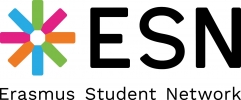1 : Universiteit :†University
2 : Hogeschool :†University College
 †Pre-Higher Education System
†Pre-Higher Education System
entry:6
exit:18
Pre-Primary :†Pre-School Education Schools (most of them are incorporated in Primary Schools)
Length of program:3
Age level from:2
Age level to:6
Elementary :†Primary School - NQF Flanders level 1
Length of program:6
Age level from:6
Age level to:12
Certificate/Diploma awarded at end:Getuigschrift van Lager Onderwijs (Primary Education Certificate)
Secondary :†Vocational Secondary Education (BSO) - NQF Flanders level 3
Length of program:6
Age level from:12
Age level to:18
Certificate/Diploma awarded at end:Diploma van Secundair Onderwijs (Secondary Education Diploma)
Secondary :†Artistic Secondary Education (KSO) - NQF Flanders level 4
Length of program:6
Age level from:12
Age level to:18
Certificate/Diploma awarded at end:Diploma van Secundair Onderwijs (Secondary Education Diploma)
Secondary :†General Secondary Education (ASO) - NQF Flanders level 4
Length of program:6
Age level from:12
Age level to:18
Certificate/Diploma awarded at end:Diploma van Secundair Onderwijs (Secondary Education Diploma)
Secondary :†Technical Secondary Education (TSO)
Length of program:6
Age level from:12
Age level to:18
Certificate/Diploma awarded at end:Diploma van Secundair Onderwijs (Secondary Education Diploma)
Secondary :†Vocational Secondary Education (BSO) - NQF Flanders level 4
Length of program:1
Age level from:18
Age level to:19
Certificate/Diploma awarded at end:Diploma van Secundair Onderwijs (Secondary Education Diploma)
The Flemish Community is responsible for education in the Flemish Region and also responsible for the Flemish institutions within the territory of the Brussels-Capital Region. Compulsory education starts on 1 September of the year in which a child reaches the age of 6, and lasts 12 full school years. Elementary (‘Basisonderwijs’) education comprises both nursery (pre-primary) and primary education. There is mainstream and special nursery and special primary education. Nursery education is available for children from 2,5 to 6 years. Although nursery education is not compulsory, almost all children attend nursery education in Flanders. Mainstream primary education is aimed at children from 6 to 12 and comprises 6 consecutive years of study and leads to the qualification “Getuigschrift van Lager Onderwijs” (Primary Education Certificate). Secondary education is aimed at young people aged 12 to 18 and is divided into three 2 year periods. From the second period onwards, there are four different education forms:
1) General secondary education (ASO), which places an emphasis on broad general education; 2) Technical secondary education (TSO), which places a special emphasis on general and technical/theoretical subjects; 3) Arts secondary education (KSO), which combines a broad general education with active arts practice; 4) Vocational secondary education (BSO), which is a practice-oriented type of education in which young people learn a specific occupation in addition to receiving general education. Pupils, who successfully end their secondary education training in General secondary education (ASO), Technical secondary education (TSO) and Arts secondary education (KSO), obtain the qualification “Diploma van Secundair Onderwijs” which gives direct access to higher education. Pupils, who end successfully their secondary education training in Vocational secondary education (BSO), obtain the qualification “Getuigschrift van Secundair Onderwijs”. Holders of such a Getuigschrift may obtain the qualification “Diploma van Secundair Onderwijs” after successfully following an extra year in Vocational secondary education.
 †Higher Education System
†Higher Education System
Thanks to the Bologna Process, all higher education programmes in Flanders (Belgium) were transformed into the Three-Tier structure, “Bachelor-Master-Doctor”-structure, by the Law on Higher Education Reform of 4 April 2003. The National Framework of Qualifications in Higher Education in Flanders is compatible with the overarching Framework for Qualifications of the European Higher Education Area. This is stated by NVAO following the conclusion of an independent and international external verification committee.
The learning outcomes of all programmes in Flanders (Belgium) are legally outlined in cycle descriptors. The higher education in Flanders has a binary structure at Bachelor level. Professional Bachelor’s programmes have the objective of bringing students to a level of general and specific knowledge and competences required to perform a particular profession or group of professions independently. A professional Bachelor’s programme can therefore lead directly to a place on the labour market.
The main objective of the academic Bachelor’s programmes is for students to go on to a Master’s programme. Thus, they are geared towards bringing the students to a certain level of scientific or artistic knowledge and competences required for scientific or artistic work in general, and towards a specific field of sciences or arts in particular. Preparing students for the labour market is only a secondary objective. Some Bachelor’s programmes are a follow-up to another (professional) Bachelor’s programme. This follow-up programme is geared towards the broadening of or specializing in competences acquired during the initial Bachelor’s programme.
Master’s programmes aim at bringing students to an advanced level of scientific or artistic knowledge and competences required for scientific or artistic work in general, and to a specific domain of sciences and arts in particular, which is required for autonomous scientific or artistic work or to apply this scientific or artistic knowledge independently in one or a group of professions. Some Master’s programmes are considered as advanced or further studies.
The qualification of Doctor is granted by a panel of researchers after a public presentation of the Doctor's thesis in which the writer/researcher/student has demonstrated an ability to conceive new scientific knowledge based on independent research. The doctoral thesis should have the potential to lead to publications in scientific journals.
Only people who have been conferred the title of Bachelor, Master or Doctor, pursuant to the Law of 2003, may carry the corresponding title of Bachelor, Master or Doctor and the legally protected abbreviations “Dr” and “PhD”.
Law on Flexible Learning Paths (2004)
Description:Flexible organisation of Education
Law on Higher Education Reform (2003)
Description:Higher Education in Flanders
Dutch
Non-university level : Diploma van gegradueerde (“Associate degree”) - NQF Flanders level 5
Description:The minimum study load of these courses is 90 credits. The maximum is 120 credits. The key elements of these programmes are: 1) “Knowledge”: comprehensive, specialized, factual and theoretical knowledge within a field of work or study and an awareness of the boundaries of that knowledge; 2) “Skills”: a comprehensive range of cognitive and practical skills required to develop creative solutions to abstract problems; 3) “Competence”: exercise management and supervision in contexts of work or study activities where there is unpredictable change & review and develop performance of self and others. Centres for adult education and university colleges may offer such programmes.
University level first stage : Bachelor - NQF Flanders level 6
Description:Bachelor programmes have a study load of 180 credits. Bachelor programmes may either be professionally- or academically-oriented. Professional programmes are offered by university colleges and aim at providing the student with a general level of specific knowledge and competencies required for a particular profession or group of professions and can lead directly to a place on the labour market. Academic programmes aim at preparing students for further study and thus provide them with a certain level of scientific or artistic knowledge and competencies required for scientific or artistic work in general, and towards a specific field of sciences or arts in particular. Preparing students for the labour market is a secondary objective. University colleges and universities may offer academic Bachelor’s programmes. Some Bachelor’s programmes are a follow-up to another (professional) Bachelor’s programme. This follow-up programme is geared towards the broadening of or specializing in competencies acquired during the initial Bachelor’s programme. Only the university colleges may offer such advanced Bachelor’s programmes. The study load of these programmes is at least 60 credits.
University level second stage : Master - NQF Flanders level 7
Description:All Master programmes have a study load of minimum 60 credits. Master’s programmes aim at bringing students to an advanced level of scientific or artistic knowledge. Some Master’s programmes are advanced or further studies aiming at deepening the knowledge and/or competences in a certain field of study. University colleges and universities may offer Master’s programmes. Postgraduate Certificate programmes aim at increasing the professional knowledge and skills by broadening and/or enlarging the competencies obtained after a Bachelor’s programme or Master’s programme. University colleges and universities may offer such programmes. The study load of Postgraduate Certificate programmes is at least 20 credits.
University level third stage : Doctor - NQF Flanders level 8
Description:The qualification of Doctor is granted by a panel of researchers after public presentation of the Doctor's thesis in which the writer/researcher/student has demonstrated an ability to conceive new scientific knowledge based on independent research. The doctoral thesis should have the potential to lead to publication in scientific journals. The organisation of doctoral studies is the autonomous decision of the universities. It can include taught courses or not and there are different approaches to interdisciplinary training. The common practice is as follows: 1) no credits are used for doctoral studies, although a few universities do use credits but only for the taught part of the programme; 2) the normal duration is 4 years of full-time study and this is the standard for the doctoral grant system to doctoral students; 3) each university has a set of rules and procedures on the supervision structure. Doctoral students present a study and research plan to their respective Faculty or Department for approval. The student will be guided by a supervisor and an accompanying committee of professors to which the student has to report at regular intervals, usually every 2 years. The committee can impose a course programme to the student, but this is not obligatory. Most universities have doctoral schools with the mission to: 1) advertise and recruit internationally, 2) optimize the guidance of doctoral students, 3) help expand and develop the skills of young researchers. In doctoral schools they offer doctoral education programmes which have to be completed before admission to the doctoral defence. The aim is to train the doctoral student by enlarging the scientific knowledge (truncus communis) and by acquiring diverse competences. The truncus communis is compulsory and has the following elements: publications, doctoral seminars linked with the own research topic and more general relevant topics, presentations on international conferences, attending doctoral seminars and courses and submitting reports regarding the doctoral progress. The qualification of Doctor is only awarded by universities.
There is no specific teacher training for the teaching staff and the academic staff of the higher education institutions, but there are also legal stipulations for academic staff like the appointments and permanent appointments of academic staff, the salary scales, remunerations and allowances, and also on evaluation.
GRUNDTVIG (for adult education)
MINERVA (digital learning environment)
VLIR-UOS (responsible actor for the Belgian government, on behalf of the Flemish universities, for all university cooperation for development worldwide)
TEMPUS
LEONARDO DA VINCI (for vocational education and training)
ERASMUS/ERASMUS MUNDUS
LINGUA (raising awareness of the importance of linguistic skills, boosting access to language learning resources and develop teaching materials)
COMENIUS
JEAN MONNET
 †Bodies
†Bodies
Ministerie van Onderwijs en Vorming
Role:The Higher Education Policy Unit belongs to the Department of Education and Training of the Flemish Ministry of Education and Training. It is responsible for policy development and evaluation of higher education. In cooperation with the higher education institutions and other organisations the Higher Education Policy Unit improves, develops and stimulates pro-active initiatives regarding higher education and research.
Street:Hendrik Consciencegebouw Koning Albert II-laan 15
City:Brussels
Province:Vlaams-Brabant
PostCode:1210
www:https://onderwijs.vlaanderen.be
Contacts:Ben Weyts (Head), Job title : Minister
Role:The VLOR is the Strategic Advisory Council for the education and training policy of Flanders. It plays a role in the policy-making process. The council operates independent of the Department of Education and Training and of the competent Minister. Representatives of all the different stakeholders in education and training meet in the VLOR. Together they look for ways to further improve education and training in Flanders.
Street:Zenithgebouw, 19de verdieping Koning Albert II-laan 37
City:Brussels
PostCode:1030
Tel:+32(2) 219-4299
Contacts:Leen Van Heurck (Head), Job title : Secretary-General
Vlaamse Interuniversitaire Raad - VLIR
Role:In 1976, the Flemish Interuniversity Council (VLIR) was set up as an autonomous public body with its own institutional status. The council consists of members who represent the Flemish universities. It defends the interests of the universities and gives advice to the Flemish government on university matters (consultation, advice and recommendations). In addition, the council organises consultation between the universities. VLHORA and VLIR organise and coordinate external quality assurance through the external reviews of programmes. In 2010, the VLHORA and VLIR merged to VLUHR, “Vlaamse Universiteiten en Hogescholen Raad”.
Street:Ravensteingalerij 27
City:Brussels
PostCode:1000
www:https://vlir.be
Contacts:Koen Verlaeckt (Head), Job title : Secretary-General
Vlaamse Hogescholenraad - VLHORA
Role:Established in 1996 and was awarded the statute of public utility institution by law in 1998. VLHORA gives advice to Flemish authorities on all policy aspects regarding university college education, applied research, social services and the practice of the arts. Moreover VLHORA organises and stimulates consultation between the institutions on all issues related to the university colleges. VLHORA and VLIR organised and coordinated external quality assurance through the external reviews of programmes until 2010, when this function was mergerd into the VLUHR, 'Vlaamse Universiteiten en Hogescholen Raad'.
Street:Ravensteingalerij 27 bus 3 - 1e verd.
City:Brussels
PostCode:1000
Tel:+32(2) 211-4195
Fax:+32(2) 211-4199
Contacts:Eric Vermeylen (Head), Job title : Secretary-General
Vlaamse Universiteiten en Hogescholen Raad - VLUHR
Role:An independent and external evaluation body in Flanders which contributes to safeguarding and continuous improvement of the quality of higher education. VLUHR QA is an essential partner in the development and stimulation of a quality culture in higher education, and as a trend-setting centre of expertise it provides services to all concerned parties.
Street:Ravensteingalerij 27
City:Brussels
PostCode:1000
Contacts:Willy Claes (Head), Job title : Chair
NARIC-Vlaanderen - NARIC-Flanders
Role:NARIC-Flanders is the recognition and information centre of Flanders (Belgium) within the ENIC and NARIC Networks of the European Commission, the Council of Europe and UNESCO. It is in charge of the academic recognition of foreign (higher education) qualifications and the professional recognition of teachers based upon the applicable European Directive 2005/36/EC. It belongs to the Agency for Quality Assurance in Education and Training. That Agency belongs to the Ministry of Education and Training (of Flanders).
Street:Hendrik Consciencegebouw Toren C2 Koning Albert II-laan 15
City:Brussels
PostCode:1210
Contacts:- DaniŽl De Schrijver (Head), Job title : Coordinator
- Nele Breuls (Senior Administrative Officer), Job title : Head of Centre
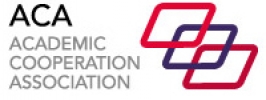 †
† †Academic Cooperation Association - ACA
†Academic Cooperation Association - ACA
Street:Egmontstraat 15
City:Brussel
PostCode:1000
www:https://www.aca-secretariat.be
Contacts:- Ulrich Grothus (Head), Job title : President
- Irina Ferencz (Senior Administrative Officer), Job title : Director
Role:The European Access Network encourages wider access to higher education for those who are currently under-represented, whether for reasons of gender, ethnic origin, nationality, age, disability, family background, vocational training, geographic location, or earlier educational disadvantage. The EAN is the only European-wide, non-governmental organisation for widening participation in higher education. It is organised for educational purposes and operates under English Law. Membership is open to all those with an interest in widening access.
Street:The EAN Secretariat c/o Artevelde University of Applied Sciences Hoogpoort 15
City:Gent
PostCode:9000
Contacts:- Imran Uddin (Head), Job title : President
- Mary Tupan-Wenno (Senior Administrative Officer), Job title : Executive Director
European Association for Quality Assurance in Higher Education - ENQA
Street:Rue de l’Industrie 10
City:Brussels
PostCode:1000
Contacts:- Douglas Blackstock (Head), Job title : President
- Anna Gover (Senior Administrative Officer), Job title : Director
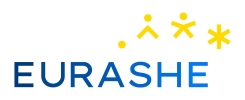 †
† †European Association of Institutions in Higher Education - EURASHE
†European Association of Institutions in Higher Education - EURASHE
Role:The European Association of Institutions in Higher Education (EURASHE) was founded in Patras (Greece) in 1990 as an international association promoting and emphasising Professional Higher Education (PHE). While EURASHE initially admitted only national organisations (such as councils of directors) as members, it later opened up membership to individual institutions. Nowadays, our members are colleges, polytechnics, university colleges, applied sciences, and universities with their professional training.
Street:Ravensteingalerij 27/3
City:Brussels
PostCode:1000
Contacts:- Hannes Raffaseder (Head), Job title : President
- John Edwards (Senior Administrative Officer), Job title : Secretary-General
European Council of Doctoral Candidates and Junior Researchers - EURODOC
Role:International federation of a number of national organizations of PhD candidates, and more generally of young researchers from several European Union countries and the Council of Europe.
Street:Rue d’Egmont 11
City:Brussels
Province:1000
Contacts:- Sebastian Dahle (Head), Job title : President
- Hannah Schoch (Senior Administrative Officer), Job title : Secretary
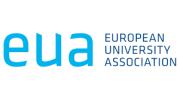 †
† †European University Association - EUA
†European University Association - EUA
Street:Avenue de l’Yser, 24
City:Brussels
PostCode:1040
www:https://eua.eu
Contacts:- Josep M. Garrell (Head), Job title : President
- Amanda Crowfoot (Senior Administrative Officer), Job title : Secretary-General
League of European Research Universities - LERU
Role:An association of 21 leading research-intensive universities that share the values of high-quality teaching within an environment of internationally competitive research. LERU advocates for: education through an awareness of the frontiers of human understanding; the creation of new knowledge through basic research, which is the ultimate source of innovation in society; and the promotion of research across a broad front in partnership with industry and society at large.
Street:Minderbroedersstraat 8 - bus 5101
City:Leuven
PostCode:3000
Contacts:- Linda Doyle (Head), Job title : Chair
- Kurt Deketelaere (Senior Administrative Officer), Job title : Secretary-General
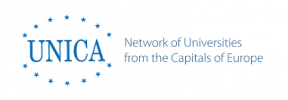 †
† †Network of Universities from the Capitals of Europe - UNICA
†Network of Universities from the Capitals of Europe - UNICA
Role:UNICA is a network of a number of universities from the capital cities of Europe. Its role is to promote academic excellence, integration and co-operation between member universities throughout Europe.
Street:C/o University Foundation rue d'Egmont nį11
City:Brussels
PostCode:1000
Tel:+32(2) 514-7800
www:https://www.unica-network.eu
Contacts:- Sorin Costreie (Head), Job title : President
- Laura Brossico (International Relations Officer), Job title : UNICA Assistant
Santander Group - European Universities' Network
Role:The SGroup European Universities' Network aims to strengthen the institutional capacities of its member universities to reinforce their international visibility, to expand their collaboration opportunities in education and research and to improve the quality of their governance, teaching, research and administrative practices. It seeks to achieve this through the transfer of knowledge, the development of strategic alliances and the improvement of intercultural understanding.
Contacts:Arnim Heinemann (Head), Job title : President
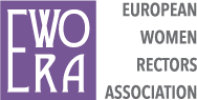 †
† †European Women Rectors Association - EWORA
†European Women Rectors Association - EWORA
Role:international, non-profit association established in 2015 under Belgian Law. It aims to promote the role of women in leadership positions in academia and to advocate gender equality in higher education and research at European and international levels. EWORA is the continuation of the European Women Rectors Platform (EWRP), which had been active since 2008 in organizing biennial European Women Rectors Conferences.
Street:11 Rond Point Schuman
City:Brussels
PostCode:1040
Contacts:- Kerstin Tham (Head), Job title : President
- Hulya Caglayan (Senior Administrative Officer), Job title : General Secretary
NARIC-Vlaanderen - NARIC-Flanders
Recognition for institution:no
Recognition for profession:no
Street:Hendrik Consciencegebouw Toren C2 Koning Albert II-laan 15
City:Brussels
PostCode:1210
Nederlands-Vlaams Accreditatie Orgaan - NVAO
Services provided and types of students dealt with:The organisation was established by international treaty and it ensures the quality of higher education in the Netherlands and Flanders.
Street:Postbus 85498
City:Den Haag
Province:The Netherlands
PostCode:2508
Tel:+31(70) 312-2300
Fax:+31(70) 312-2301
Role:One of the biggest student associations in Europe aimed at supporting and developing student exchange.
Street:Jozef II-straat 120
City:Brussels
PostCode:1000
www:https://esn.org
Contacts:- Rita Dias (Head), Job title : President
- Wim Gabriels (Senior Administrative Officer), Job title : Director
- Lina Mohorić (International Relations Officer), Job title : Communication Manager
 †Admission to Higher Education
†Admission to Higher Education
Diploma van Secundair Onderwijs
Requirement for:All Associate degree programmes.
The board of the institution may, pursuant to regulations, facilitate access to a particular programme on the basis of alternative admission requirements, solely based on humanitarian grounds; medical, psychological or social grounds; the overall level of the candidate, which is assessed by the board of the institution.
Entrance examinations must be sat for Nautical Sciences and Fine Arts
Diploma van Secundair Onderwijs
Requirement for:Bachelor's degrees
The board of the institution may, pursuant to regulations, facilitate access to a particular programme on the basis of alternative admission requirements, solely based on humanitarian grounds; medical, psychological or social grounds; the overall level of the candidate, which is assessed by the board of the institution. A student who has already obtained a Bachelor’s degree can enter another Bachelor’s programme without having to take up all the credits of that programme.
Entrance examinations must be sat for in Civil Engineering, Civil Engineering-Architecture, Dental Sciences and Medical Sciences.
Entrance examinations must be sat for Dental and Medical Sciences.
Definition:Holders of a foreign qualification. Nationality is not an issue regarding access to higher education.
Admission Requirements:Foreign students who can justify having obtained a secondary school leaving certificate giving access to higher education in their country may start higher education in Flanders. Foreign students also have to pass the entrance examinations for Nautical sciences, Fine Arts, Dental and Medical sciences. Foreign students holding a higher education diploma may obtain a reduction of the total study load of a programme.
Language Proficiency:Students must be proficient in Dutch for undergraduate studies. Candidates may be required to sit for a language test. The universities organize language courses during the summer.
 †Recognition of Studies
†Recognition of Studies
The concept of accreditation was incorporated into the Higher Education Act 2003. The accreditation system is organised in close cooperation with the Netherlands by an independent Dutch-Flemish Accreditation Body (Nederlands Vlaams Accreditatie Orgaan NVAO) which was set up in September 2003. In Flanders, accreditation is a formal decision by the NVAO that a programme meets the predefined quality criteria. These criteria are laid down in NVAO’s accreditation frameworks. Accreditation is however only one part of the whole quality assurance system of higher education in Flanders. This quality assurance system consists of three parts: internal, external, and the third part is where the formal decision is taken.
(1) Internal Quality Assurance: self-evaluation. The self-evaluation of the programme is organized by the higher education institution itself and results in the self-evaluation report.
(2) External Quality Assurance: external quality assessment. The self-evaluation report is the starting point of the external quality assessment. The result of the external quality assessment is the assessment report. The external quality assessment is organised by the VLHORA and VLIR.
The VLHORA, the Council of Flemish University Colleges, was established in 1996 and was awarded the statute of public utility institution by law in 1998. The VLHORA gives advice to the Flemish authorities on all policy aspects regarding university college education, applied research, social services and the practice of the arts. Moreover the VLHORA organises and stimulates consultation between the institutions on all issues related to the university colleges.
In 1976, the Flemish Interuniversity Council (VLIR) was set up as an autonomous public body with its own institutional status. The council consists of members who represent Flemish universities. It defends the interests of the universities and gives advice to the Flemish government on university matters (consultation, advice and recommendations). In addition, the council organises consultation between the universities.
VLHORA and VLIR organise and coordinate external quality assurance through external reviews of programmes. In 2010 they merged to VLUHR, “Vlaamse Universiteiten en Hogescholen Raad”. VLUHR organizes these assessments by setting up an independent assessment panel of experts responsible for assessing all the programmes in a certain field of study. The assessment panel consists of experts in the field of study, experts in quality assurance, educational/pedagogical experts and experts in the international development of the field of study. Students are always involved and represented in the assessment panel.
(3) The formal decision: accreditation. The Netherlands and Flanders have set up an independent accreditation organization by international treaty, the Nederlands-Vlaamse Accreditatieorganisatie (NVAO). Higher education programmes that have successfully gone through the external quality assessment send their assessment report to the NVAO. The NVAO then evaluates the thoroughness of the external assessment and accepts or rejects its findings. If the accreditation decision is positive, the programme is accredited. This means that the programme is included in the Higher Education Register. This registration means that the degree awarded by the programme is recognised by the national authority, Flanders. Additionally, accredited programmes can receive public funding and the students enrolled in these programmes can receive student support (e.g. grants). However, public funding and student support are normally not available for programmes offered by private institutions. A positive accreditation decision by the NVAO is kept or listed in the Higher Education Register for 8 years. If the accreditation decision is negative, the programme loses accreditation. This means the programme is deleted from the Higher Education Register and can no longer be offered. However there is a possibility of temporary recognition during a recovery period. After a negative accreditation decision, the institution has the opportunity to submit an application to the Flemish government for temporary recognition. This has to be done within one month following the notification of the negative decision. A detailed plan for improvement has to be put forward together with the application. Following advice from the Recognition Commission, the Flemish government takes a decision within three months of the application. Temporary recognition may have a validity of one to three years. In the NVAO's accreditation system, learning outcomes are made use of at the three levels. A programme is expected to explicitly define its intended learning outcomes. These are the competences a graduate should acquire during his studies. An assessment panel first judges whether a programme's intended learning outcomes are in line with the required level and the subject of the programme. The level is evaluated by matching the intended learning outcomes to the Framework for Qualifications of the European Higher Education Area. Additionally, the assessment panel assesses whether these intended learning outcomes are in line with what is (inter)nationally expected of a programme in that subject. NVAO secondly judges the potential learning outcomes. These are the competences a student can achieve in the programme as it is offered. This is mainly done by checking the content of the curriculum with the intended learning outcomes. Thirdly, NVAO assesses the achieved learning outcomes. These are the competences a graduate has actually acquired during his or her studies. An assessment panel needs to read students' work such as essays, end of term papers and theses to be able to judge the achieved learning outcomes and then match those with the required learning outcomes. The required learning outcomes are of course the level-specific and intended subject-specific learning outcomes as defined by the programme and (positively) assessed by the panel
Accreditation is a prerequisite for awarding Bachelor's or Master's degrees education funding and study financing for students.
For the Exercise of a Profession:For qualifications which give direct access to the following 7 regulated professions in Belgium, namely midwife, nurse, medical doctor, dentist, architect, veterinary surgeon and pharmacist, the programmes offered by higher education institutions in Flanders have to meet the requirements stipulated in the European Directive 2005/36, like study load and detailed listed programme components.
Law on the National Qualifications Framework (NQF) of Flanders & EQF for LLL (2009)
Convention on the Recognition of Qualifications concerning Higher Education in the European Region (Lisbon Recognition Convention), 1997 ETS No 165 (2009)
Self-Verification of NQF Flanders, compatibility with the overarching framework of qualifications of the European Higher Education Area (2009)
By Road:Yes
By Rail:Yes
By Air:No
Available to Foreign Students:Yes
 †Credentials
†Credentials
Diploma van Secundair Onderwijs
Description:The “Diploma van Secundair Onderwijs” is a qualification received upon completion of the 2nd year of the 3rd grade of: 1) General secondary education (ASO), which places an emphasis on broad general education; 2) Technical secondary education (TSO), which places a special emphasis on general and technical/theoretical subjects; 3) Arts secondary education (KSO), which combines a broad general education with active fine arts practice. The Diploma van Secundair Onderwijs may also be obtained upon completion of the 3rd specialization year of the 3rd grade of Vocational secondary education (BSO), which is a practice-oriented types of education in which young people learn a specific occupation in addition to receiving general education.
Diploma van gegradueerde
Description:The minimum study load of these courses is 90 credits and the maximum 120 credits. The key elements of these programmes are: 1) “Knowledge”: comprehensive, specialized, factual and theoretical knowledge within a field of work or study and an awareness of the boundaries of that knowledge; 2) “Skills”: a comprehensive range of cognitive and practical skills required to develop creative solutions to abstract problems; 3) “Competence”: exercise management and supervision in contexts of work or study activities where there is unpredictable change and review and develop performance of self and others. Centres for adult education and university colleges may offer such programmes. NQF Flanders level 5.
Credential required for entry:Diploma van Secundair Onderwijs
Type of institution where credential is offered:Universiteit (University)
Hogeschool (University College)
Bachelor
Description:Bachelor programmes have a study load of 180 credits. Bachelor programmes may either be professionally- or academically-oriented. Professional programmes are offered by university colleges and aim at providing the student with a general level of specific knowledge and competencies required for a particular profession or group of professions and can lead directly to a place on the labour market. Academic programmes aim at preparing students for further study and thus provide them with a certain level of scientific or artistic knowledge and competencies required for scientific or artistic work in general, and towards a specific field of sciences or arts in particular. Preparing students for the labour market is a secondary objective. University colleges and universities may offer academic Bachelor’s programmes. Some Bachelor’s programmes are a follow-up to another (professional) Bachelor’s programme. This follow-up programme is geared towards the broadening of or specializing in competencies acquired during the initial Bachelor’s programme. Only the university colleges may offer such advanced Bachelor’s programmes. The study load of these programmes is at least 60 credits. NQF Flanders level 6
Credential required for entry:Diploma van Secundair Onderwijs
Master
Description:All Master programmes have a study load of minimum 60 credits, except in Medicine (240); Veterinary Medicine (180); Architecture, Bio-Engineering,Education science, Engineering, Economics, Law, Music, Dentistry, Design, Para-medicine and therapies, Pharmacy and Psychology (120). Master’s programmes have the objective to bring students to an advanced level of scientific or artistic knowledge and competences required for scientific or artistic work in general, and to a specific domain of sciences and arts in particular, which is required for autonomous scientific or artistic work or to apply this scientific or artistic knowledge independently in one or a group of professions. Some Master’s programmes are advanced or further studies aiming at deepening the knowledge and/or competences in a certain field of study. University colleges and universities may offer Master’s programmes. NQF Flanders level 7.
Credential required for entry:Bachelor
Doctor
Description:The qualification of Doctor is granted by a panel of researchers after public presentation of the Doctor's thesis in which the writer/researcher/student has demonstrated an ability to conceive new scientific knowledge based on independent research. The doctoral thesis should have the potential to lead to publication in scientific journals. The organisation of doctoral studies is the autonomous decision of the universities. It can include taught courses or not and there are different approaches to interdisciplinary training. The common practice is as follows: 1) no credits are used for doctoral studies, although a few universities do use credits but only for the taught part of the programme; 2) the normal duration is 4 years of full-time study and this is the standard for the doctoral grant system to doctoral students; 3) each university has a set of rules and procedures on the supervision structure. Doctoral students present a study and research plan to their respective Faculty or Department for approval. The student will be guided by a supervisor and an accompanying committee of professors to which the student has to report at regular intervals, usually every 2 years. The committee can impose a course programme to the student, but this is not obligatory. Most universities have doctoral schools with the mission to: 1) advertise and recruit internationally, 2) optimize the guidance of doctoral students, 3) help expand and develop the skills of young researchers. In doctoral schools they offer doctoral education programmes which have to be completed before admission to the doctoral defence. The aim is to train the doctoral student by enlarging the scientific knowledge (truncus communis) and by acquiring diverse competences. The truncus communis is compulsory and has the following elements: publications, doctoral seminars linked with the own research topic and more general relevant topics, presentations on international conferences, attending doctoral seminars and courses and submitting reports regarding the doctoral progress. The qualification of Doctor is only awarded by universities. NQF Flanders level 8.
Credential required for entry:Master
Type of institution where credential is offered:Universiteit (University)
 †Data Provided by
†Data Provided by
From:2019
To:2020
IAU from the Flemish Ministry of Education and Training, Belgium, and ENIC-NARIC information, May 2020. Bodies updated December 2023.
Updated on 11-05-2020



